Now more and more often girls are thinking about whether to give birth in 40 years. Late deliveries in Europe are not so rare. In Russia, too, a similar phenomenon began to develop recently. But is it worth doing this? How justify the risks? Is it possible to give birth after 40 years of a healthy baby? What is required for this? In fact, to understand all this is not as easy as it seems. After all, if a girl thinks about whether it is possible to give birth to a child after 40 years, you will have to study many points of vision. And only after that do the appropriate conclusions. So what to look for?
Why does desire arise
First of all, every woman should decide for herself why she wants to give birth after 40 years. After all, this age is considered solid. Every girl should have good reasons to agree to such a step.
Today in Russia, most often about late childbirth are thinking:
- for fear of being a bad mother;
- in the absence of a career;
- due to problems with finances (children are expensive);
- in the absence of own housing;
- when they want to live a little for themselves.
Doctors say that most women want to give birth at the age of 40 only because by this age they manage to get on their feet in life. Usually, by the age of 40, a person already has his own housing, money, and career. Then you can think about the continuation of the species. But is it too late?
Physiology
In fact, there is no clear answer. Therefore, doctors and women very often have disputes over late childbirth. To give birth in 40 years? This is every girl must decide for themselves. But only after studying all the positive and negative aspects of the process.
In terms of physiology, the body is ready for childbirth from 18-20 years. It is to this period that you can get pregnant, bear and give birth to a healthy baby with minimal negative health effects.
The physiologically ideal time continues for childbirth to approximately 35 years. After that, the person begins to age the body. And so many doctors disapprove late childbirth.
Firstborn or not
Should I have a baby? 40 years is not a sentence for modern parents, if they are full of strength and energy. Therefore, they decide on such a risky act - to give birth after 40.
In fact, a lot depends on what kind of birth exactly we are talking about. The firstborn at that age is, according to many doctors, the egoism of the parents. But if the birth has already been before, you can give birth again. But only after a thorough examination of the woman’s body and the treatment of all diseases. After all, even a minor disease can negatively affect the health of the future baby.

Danger
In fact, even giving birth in the early years is a great danger. That is why it is clear why it is so important to figure out whether to give birth in 40 years. An error or selfishness of parents can spoil not only family relationshipsbut also ruin the kid's life.
Childbirth - a natural process that greatly loads the body of a woman. All the doctors say that it was during this period that the girl's many chronic diseases that had not previously made themselves felt were exacerbated. At a young age, preserving pregnancy and defeating certain diseases is not so easy. And with age to make it even harder.
Accordingly, it will be more dangerous and more difficult to give birth at the age of 40 than at 20. Moreover, there is a high likelihood that after gestation a woman will worsen many diseases. Most of the health problems, even for a completely healthy and strong person, arise precisely after 40. This factor will have to be taken into account before accepting late childbirth.
Miscarriage
To give birth in 40 years? Answering this question is not as easy as it sounds. Doctors often do not recommend to agree to such a step. Why? It's not just the exacerbation of disease.
The problem is that after 40 years, the likelihood of miscarriage or early birth with a fatal outcome for the fetus increases. According to statistics, the probability of miscarriages in 40 years is 34%, in 45 - 53%. In 20 years, miscarriages occur only in 10% of cases, in 30 - in 12-13%.
Vices
Can you give birth at 40? Yes. And this practice is observed in many countries. Especially in Europe. Only this goal will have to be approached with special attention and responsibility.
After 35 years, as a rule, the probability of not only miscarriages increases, but also the formation of congenital malformations. Doctors say that children born after 40 are often born with hyperactivity or Down syndrome.
All parents should be aware of this. Only in this way will it be possible to weigh all the pros and cons of the idea. The goal of pregnancy is the birth of a healthy baby. And if doctors strongly recommend abandoning pregnancy at the age of 40 due to the high probability of the appearance of malformations, it is better to listen to them.
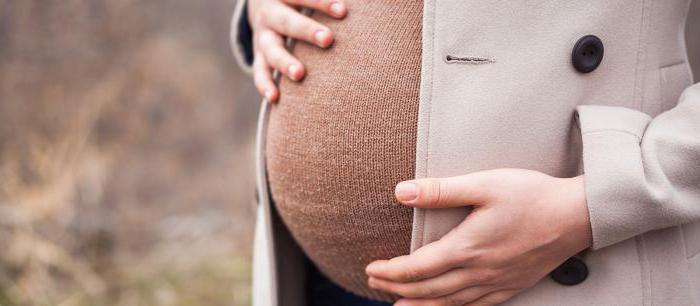
Chances of pregnancy
To give birth to a child in 40 years, as practice shows, it is possible. But doctors say that if a woman managed to get pregnant by this age, she was lucky. Why?
Fertility in women decreases over the years. That is, the probability of getting pregnant is reduced. After 40 years, according to statistics, fertility will decrease by 90%. Accordingly, even if the doctor allowed the birth, it is not a fact that the pregnancy will happen.
But fertility is an individual component of the female body. Someone has difficulty conceiving at the age of 20, not to mention 40. Therefore, it is not so easy to get pregnant. And if conception happened after this age, most women refuse to have an abortion.
About menopause
What other features need to pay attention to expectant parents? Having a baby after 40 is not as easy as it sounds. In addition to all the problems listed earlier, the woman is faced with a process such as menopause. It is not difficult to guess that this is the first sign of aging.
Menopause and menopause are periods that have a very negative effect on a woman. They mark the end of the childbearing period. In fact, after 35 years, the body begins to age quickly. And to 40-45 years, many women suffer from menopause. In this case, it is recommended not to become pregnant.
By the way, doctors say that with premenopause, which occurs just in 35-38 years old, problems with conception may arise. More specifically, it is extremely difficult to catch ovulation in a given period of time. All this must be considered if you want to give birth as soon as possible.
Wonderful eggs
What if a woman wants to give birth at age 40? The opinion of doctors about this, as already mentioned, is ambiguous. It is impossible to say with certainty whether to give birth or not.
Not so long ago, scientists came to the conclusion that a woman has a certain set of eggs that will be suitable for fertilization. And they all end at different times.
One thing is for sure - by the age of 40, there are practically no suitable eggs. Accordingly, even the chance to become pregnant during this period is small. If you want to give birth to a third child at 40, or at least a second child, it is recommended to consult a doctor. But in this case, the body was already familiar with childbirth. And if the doctor is able to ascertain the normal health of the woman, he will allow the pregnancy.
Delivery
Is it possible to give birth to a second child at the age of 40? Opinion on this is not entirely unambiguous. Yes, just like the first, childbirth is possible. Only if we take into account all the points previously listed, can we conclude that such a step is dangerous for the fetus and for the expectant mother. Not always, but very often this is the case.
Doctors say that very few people manage to give birth on their own at a specified age. Most often it is necessary to do a cesarean section. Of course, the operation does not pass without a trace. She leaves its mark on the weakened body of a woman. To give birth to a child at the age of 40 is rather a feat. And a risky move for most couples.
Respectively, natural childbirth unlikely to take place. And if a girl thinks no longer about the first delivery with cesarean section, then she will most likely be offered to refrain from this process.

To give birth to a second child at the age of 40? Each girl, as has already been said, independently decides this for herself. But, as a rule, the second cesarean section is not as dangerous as the third or fourth. Accordingly, many women agree to such a step. But according to statistics, while only 2% of girls give birth late.
What can prevent
Should I have a baby? 40 years is not a sentence for women and men. Many say that it is at this age that life begins. And so the late childbirth takes place. There are a number of factors that adversely affect pregnancy. Especially in adulthood. With their presence, physicians recommend not to behave selfishly and not to give preference to late childbirth. What is this about?
Among the processes that negatively affect pregnancy and childbirth are:
- Bad habits. By the age of 40-50, the organism that received alcohol or tobacco is depleted. This leads to problems with the lungs, as well as other organs. Even at a young age, bad habits have a negative effect on the process of conception.
- Stress. The more a person lives, the more stress he endures. In old age, extra excitement puts the heart. And pregnancy is a load on the whole organism. Can you really have a baby after 40 years? Yes, but only with a healthy heart and no constant stress. Otherwise, the baby will not be born healthy.
- Improper nutrition. There are people who believe that in 40 years, life comes to an end. For the body, this is a new stage in which certain diseases are exacerbated. Even in the absence of pregnancy. Malnutrition is a factor that affects both the success of conception and the course of the entire pregnancy.
- Caffeine. Consuming large amounts of caffeine can also cause heart problems. And during childbirth, a weakened female body can not withstand the load.
Accordingly, all of these points have a negative effect on the success of conception and during pregnancy. If a woman has abused them for a long time (or a lifetime), doctors are unlikely to allow late delivery. This is dangerous in the first place for the mother in labor. Doctors always first of all think about the integrity and safety of the mother, and then about the child.
Should I go to the doctor
So, the woman decided for herself to have a second child at the age of 40. Experts need to ask about this or not? Is it worth it to go to the gynecologist and other specialists before planning a pregnancy?
The answer is obvious. Yes, before planning a child, it is necessary to undergo a comprehensive examination of the body. After all, pregnancy is a difficult process that requires thorough preparation at any age.
In general, only a gynecologist will be able to tell a woman exactly, to give birth at the age of 40 or not. Most often the answer will be negative. All this is due to the fact that ideally healthy people at a specified age are difficult to find. Or the doctor will warn about possible complications and consequences of late birth. But it can be said with confidence that it is impossible to do without consultation in this case.
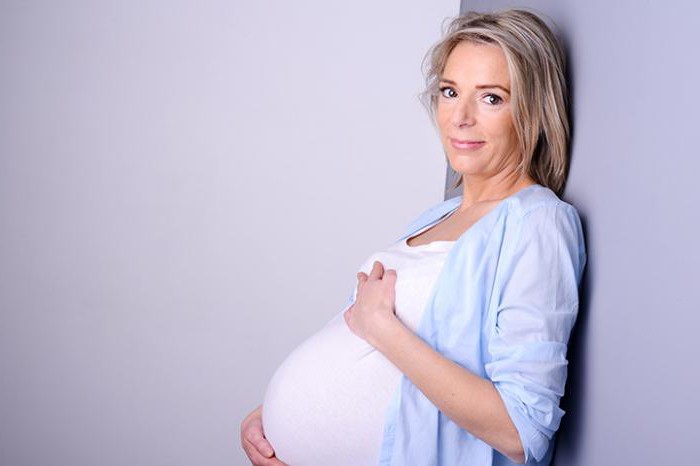
Individuality
Can I have a baby after 40 years? Yes, but under certain conditions. And all the woman will do at your own peril and risk. Late delivery is not prohibited by medical professionals, they are simply not recommended.
In general, this issue is solved individually. In general, as already mentioned, it is not often recommended to give birth after 40. But there are exceptions. Every woman has her own body. Depending on his condition, the response of the doctors will vary.
Most often, when addressing issues related to late childbirth individually, consider:
- history of women's health;
- general health;
- the desire of the future mother;
- heredity;
- the presence of chronic diseases;
- psychological state.
Only after a careful study of these factors will it be possible to say with certainty what the doctor thinks about late labor. Childbirth can proceed normally even in 40 years. But the probability of such an outcome is small. Many women try to hope for good luck. Do not do this. If the doctor said that giving birth is too risky, you need to listen to it.
Rejuvenation
Some believe that pregnancy is not only a burden on the body, but also a means of its rejuvenation. Indeed, the way it is. Scientists have shown that women rejuvenate during pregnancy. Not too much, but the result is. All this is proven by doctors. The result of rejuvenation is achieved due to the hormones that begin to be produced in a woman in an interesting position.
For example, you can see that a girl has accelerated hair growth. It is because of pregnancy that a similar result is obtained. A huge role in the rejuvenation of the body is the placenta. It is formed to 12-14 weeks of pregnancy. After that, the placenta begins to secrete a hormone that favorably affects the woman's body.
Not always giving birth at 40 is contraindicated. Given that in an interesting position the body of a woman is rejuvenated, it can be concluded that pregnancy also has positive aspects. But, as doctors say, the risks for a woman and a future baby are still high. And they can not be justified by a slight rejuvenation.
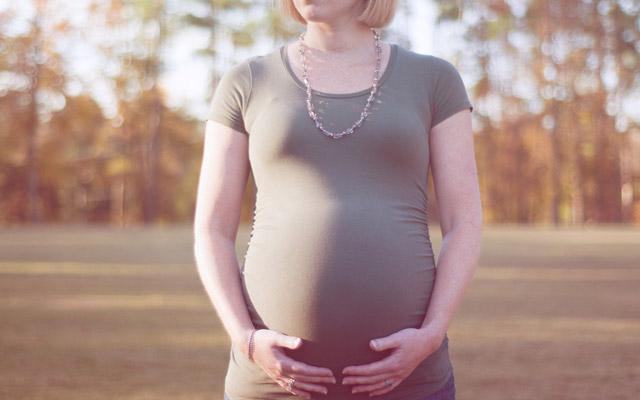
Selfishness or calculation
To give birth to a child at 40 is a decision that is often made only on the basis of calculation? Or do future moms just include selfishness and their "want"?
Doctors often emphasize that few people even think about how dangerous late births are. And either pregnancy occurs by chance, or it is a conscious choice of a woman.
Some believe that late childbirth - To some extent, the way it is. Especially if we are talking about the firstborn born in 40-45 years. The thing is that when you graduate from school or university in this case, the child will be met not by young parents, but by grandparents. It leaves its mark on the future life of the child.
It is quite another thing if, after long and persistent attempts to conceive, conception happened, but the age went up to 40 years. Then childbirth is a conscious choice that cannot be called egoism. But, as a rule, such couples are carefully examined and listen to all the recommendations and advice of doctors.
What else can be said about late childbirth? What features of this process are recommended to pay attention to all girls?
With age, a woman's probability of multiple pregnancy increases. Therefore, if a girl wants to give birth after 40, she must be prepared for the fact that she may show several fruits.
If we talk about preterm birth, then they occur more often in those who already have children. Women who give birth after the first 40 children usually give birth on time. These very observations are made by physicians over the years.
The probability of cesarean section is actually the same at any age. But it is considered that after 35 years they resort to this operation more often. All this is due to the fact that pregnancy itself is more difficult for women in adulthood. And natural childbirth is sometimes life-threatening.
For men
Is it possible to give birth after 40 years of the second child? The opinion of experts on this issue regarding women is known. And what they say about men? Until what age can they become fathers?
There is no exact answer in this area. After all, men usually retain their functions up to 45-50 years, more often up to 60. Even in 70 years, a man can become a father. For strong sex there are no serious contraindications.

Results
What can say a woman who gave birth at 40? Reviews of late births are different. There are those who complain about the difficult course of pregnancy and not the best outcome. Someone says that at the age of 40, he carried out and gave birth to a healthy baby without any problems. So, late childbirth is an individual question.
Doctors often do not recommend giving birth after 40. Late delivery is a huge risk. But this does not mean that everyone should give birth early. As already noted, this process is purely individual. Each case must be considered separately. When can I give birth? 40 years is not a sentence for modern citizens!
My wife and I have no children, because until now we were not ready for their appearance. Now his wife is 48 years old and she wants a child, the menstrual cycle is only periods. One of our friends gave birth to a child at the age of 49, seemingly healthy. Should I have a child at that age?
Comments 31
Best comment
23/12/2016 12:56
RINGING AFTER 40 IS A HUGE KAYF !!! She gave birth at 42, baby a year. The flow of happiness does not stop with the moment she learned that she was pregnant. Health was not critical to my child’s, but there was a huge surge of vital energy, I feel younger by a couple of decades. In many ways, the body's work has improved on the contrary. The baby is very welcome and probably therefore there was no postpartum depression. I am a modern advanced mother, I watch my health and I do not observe problems with age difference. I have many acquaintances who are late children and they have little old parents, but these people have no problems with not accepting the latter. At what there are mothers who in 50 are already old ruins, but there are also who are in 70 still hoo. In birth, too, it was all without difficulty. This is so cool that the child is mine, and not from the orphanage. I sympathize with people who listened to the author's advice and did not feel all these incredibly beautiful hormonal emotions associated with the birth of a late baby.
At the age of 40, childbirth is hardly surprising and, even more, is considered almost useful. What do the doctors think? How to give birth healthy baby?
How to give birth and raise a healthy baby
Many women today tend to get up on their feet (get an education, achieve success in their careers), and then have children. Thirty-year women in labor in domestic maternity hospitals are no longer stigmatized, as they used to be old-born. In a situation where the average age of those who give birth for the first time is 28 years old, that would be strange.
At the age of 40, childbirth is hardly surprising and, even more, is considered almost useful. They even say that they rejuvenate the body of a woman. What do doctors think about this?
Our questions are answered by the experts of the educational program “Happiness of motherhood to every woman!” Lyudmila Artsybysheva, obstetrician-gynecologist, head doctor of the Health Clinic, Victoria Zayeva, head doctor of the Mama clinic, member of the Russian and European Association of Human Reproduction.
How to give birth to a healthy baby after 35
Of course, in certain periods - during periods of “bloom” - gestation of pregnancy and childbirth favorably affect the woman's body. But after 35 years, the eggs, laid back when the expectant mother herself was still an embryo, begin to age very hard. Repeated labor at the age of 40 in a healthy woman does not arouse concern among doctors. But the first birth at 40 years of age is marked in the card of a pregnant woman as a separate diagnosis. By the age of 40, women, as a rule, accumulate a certain stock of somatic and gynecological diseases, and their pregnancy does not always go smoothly. The frequency of complications during pregnancy and childbirth increases, chronic diseases are exacerbated. Preparing for pregnancy in such women should be done with the utmost care by obstetrician-gynecologists in conjunction with doctors of other specialties.
How do women give birth after 40? Without the help of a fertility specialist, it is difficult to overcome the problem. Pregnancy is a special condition for the organism when the "tension" of all its systems occurs. For the young body, this state is easily overcome, and the woman quickly recovers after giving birth. After 35 years, in addition to possible difficulties with the onset of pregnancy and the occurrence of infertility, it is often required to apply the IVF method (in vitro fertilization) as the most effective method achieve pregnancy. Difficulties with its bearing and difficult childbirth - in most cases, therefore it cannot be said that the body becomes “healthier”.
True, usually women who become pregnant after 40 years have a good hormonal background and can quickly recover from childbirth. Active estrogenic action during pregnancy can significantly improve the appearance of a woman, rejuvenate, dropping her 10 years: her eyes will shine, the skin will become smooth and soft, hair will be thicker. Of course, all this is feasible in the presence of good health in a woman. Often this is a genetic predisposition, since scientists have found out that these women live longer than their peers.
Home: What are the risks of those who consciously refuse to give birth?
Women who do not want to have children may be at risk for breast cancer and endometrial cancer. In this case, the risk is higher for those women who either had abortions or had an abortion, compared with those who had never had a pregnancy.
BEFORE: Nothing special happens at the age of 30 with a woman - this is just a psychological threshold. There is not much difference between births at 29 years old and at 31 years old. But is this from a medical point of view? 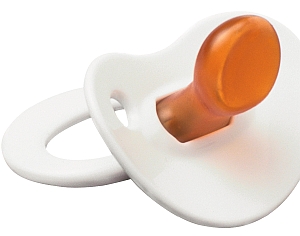
From a medical point of view, with each menstrual cycle, eggs are not used, they are wasted. Therefore, for some women, several years of difference may be critical for good ovarian function and the onset of pregnancy.
However, there is a difference between, for example, childbirth at 29 years old and at 34 years old. Pregnancy spontaneously occurs at 34 years less often than at 29 years old, and it can be more difficult to bear it.
BEFORE: The reproductive age period lasts on average from 18 to 45 years. And from the point of view of gynecologists, when is the best time to give birth to the first child?
We all want to look great, have a good job, travel the world. And this means that we want to get an education that corresponds to the future career, become successful in work, as a result, the majority simply do not have time to give birth to a child.
This position has been fashionable quite recently, but it is beginning to change among young people, because the state has very actively taken up the propaganda of precisely family values and motherhood. However, postponing childbearing "for later" leads to the existence of the concept of "old-aged women", as they are called in the maternity hospital. These are women whose age is above 30 years. Unfortunately, this is true now, although the ideal age for first pregnancy is 25 years.
In general, from the point of view of the obstetrician-gynecologist, the most favorable period for conceiving and giving birth to a child lasts from 18 to 35 years - it depends primarily on the state of the body of each woman.
How to give birth to a second child
BEFORE: What is the optimal break between the birth? Are there any cases when women decide to have a second child, if the first is already 15–18 years old?. Isn't it risky?
Births are considered risky, when the break is less than a year, during this time the body does not have time to recover: if there were breaks, then they still do not heal, the muscles of the uterus do not have time to return to their former form, etc.
Nature provides that after 9 months of pregnancy a woman breastfeeds another year, and thanks to the lactational amenorrhea method, the risk of becoming pregnant is greatly reduced. During this time, the ability to carry out the child normally without the threat of interruption returns.
If the break is more than 15 years, then such births are perceived as the first and the risks associated with them are exactly the same, that is, everything depends on the health status of the woman herself.
From the point of view of health, the optimal interval between births is 2–3 years, but it must be understood that this is a very individual concept. How was the pregnancy, what were the births, what is the state of health of the woman - these are the questions that need to be assessed in order to plan the next pregnancy.
BEFORE: Is it true that menopausalis is easy for a woman who gave birth at around 40 years old?
The number of pregnancies and the age of the woman who gave birth does not affect menopause. After all, this is a genetically determined process, which is laid in us by nature, and most often the age of menopause is inherited. The nature of the premenopausal period is also not affected by the age of the woman who has given birth. Although, of course, the later the woman is able to conceive, the later the onset of menopause.
BEFORE: The age after 35 for a woman who has decided to become pregnant is still considered by many to be the “age of risk” - she is sent to genetic counseling even in the absence of genetic diseases in the family. Many doctors argue that the cause of the frequent complications of pregnancy and childbirth in women over 35 years old is structural changes in the body.
How does this relate to the fact that women are “younger”: 100 years ago, a 40-year-old woman was considered almost an old woman, now she is healthy, energetic, full of strength, with a strong young body.
35 years old is absolutely normal age for the second birth. If we talk about the first birth, then, indeed, 35-year-old pregnant women are observed very carefully.
The fact is that before the age of 35, nature selectively approaches the quality of embryos, if there are any deviations, a miscarriage is more likely to occur.
By the age of 35, women may experience many somatic diseases that aggravate the course of pregnancy. At this age, when the decline of reproductive function is approaching, nature in order to preserve the population tries not to reject the embryos, even if they are with genetic abnormalities. Therefore, after 35 years, the risk of pregnancy with complications increases. How to give birth to a healthy child after 35: the experience of the stars.
BEFORE: What age-related changes and chronic diseases are considered contraindications for pregnancy?
There are no age changes that would be contraindications. If, for example, ovarian function dies out, premature menopause, then the pregnancy becomes unlikely, but if it occurs spontaneously, then it is preserved and observed in accordance with the health of the woman.
Contraindications are serious violations in the work of blood vessels, kidneys, liver, injuries of the brain and spinal cord, strokes, heart attacks and oncological diseases.
BEFORE: Is it possible to prolong the fertility period of a woman?
Fertile, or reproductive, period for each woman is individual, genetically laid. That is, a woman's eggs are laid during her intrauterine development, and throughout the reproductive period of life, she uses the reserve that was defined for her before birth. It is impossible to extend it, unfortunately. Neither fitness, nor diet, nor physiotherapy is able to influence the length of the fertile period of a woman.
But another thing is also known: transferred gynecological and somatic diseases can shorten this very period. Therefore, no matter how boring it sounds, but, of course, the rejection of bad habits, healthy way life, timely access to a doctor, of course, have a positive effect on the reproductive function of women, because they help to resist the harmful factors that reduce it.
How to make and give birth to a healthy child: personal experience
Claudia Lomadze, 40 years old, daughter Masha, 8 months 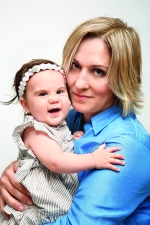 I always wanted to have a child, and everyone around me thought that I would have children. But my family somehow did not work out. Novels happened, and even married called. But all is not right and wrong, and it was thought that the next meeting would be better than the previous one ... And the biological clock was ticking, there were no pregnancies. I did a survey, and it turned out that in order for me to give birth, we must do a serious operation.
I always wanted to have a child, and everyone around me thought that I would have children. But my family somehow did not work out. Novels happened, and even married called. But all is not right and wrong, and it was thought that the next meeting would be better than the previous one ... And the biological clock was ticking, there were no pregnancies. I did a survey, and it turned out that in order for me to give birth, we must do a serious operation.
At that time I had a relationship with a man. But I knew perfectly well that he does not plan to create a family with me, much less to have children. So I understood well: the child - this will be mine and only my story.
In 2006, I had an operation, everything went well and began to heal. By the way, they operated on me in Hungary. And there everyone was quite calm about my age. And in Moscow, one doctor once told me at the examination: “Why do you need children? At your age, you need to look for someone with whom you can safely grow old. ” It struck me then ...
Two years later, I appeared to the doctor and he said: "you can become pregnant." And literally a month later everything happened. When I saw the test, I didn’t even believe it at first, I was confused. But I had no doubts. I broke up with the father of the child and did not discuss this issue. I must say that during pregnancy I did not have any discomfort, except for internal proceedings with myself. I felt great, did not suffer from toxicosis and went to work literally until the last day.
I was lucky - my parents supported me and did not ask any extra questions. In general, we are very friendly: parents, brother’s family and Masha and I. Every weekend we gather together in the house where my parents live, having fun spending time together. And friends, one and all, said: “Super, well done!” - and not one said that it was too late and we should live for ourselves.
Was there fear? Of course. Too much is changing in life. I'm used to being alone. And I kept thinking: would I be interested in pots, fairy tales, games? I could not imagine how, after so many years of hard work, I could sit at home and do housework. The psychologist said that you need to talk as much as possible with the child, and I was worried if I could. I have always been comfortable with myself and do not need the public. But in fact, these fears were trivial. Worried about the health of the child, about his - and the little things go. Other fears appeared, for example, losing a job. I had no savings, and this is wrong. Childbirth was an expensive pleasure. If the company where I had worked for many years would not continue to pay me a part of my salary now that I’m sitting in maternity leaveI do not know how I would get out. I also worry that I have enough health so that I can provide the best for Masha.
I became sentimental, it is difficult for me to talk about it, but the main thing that I felt was that I had the closest person. When she was still small, lay so helpless, I felt affection more physiological, natural. And now, when she hugs, kisses - this is a completely different, delightful feeling.
And one more strange thing began to happen. Upon learning that I had given birth to a child, many of my acquaintances began to say in one voice: “Excellent, it means that you will soon get married!” The world was filled with positive stories when a woman and her child had a good personal life.
And I myself began to treat different things differently. For example, I have extra weight, and I think with horror that I need to lose weight after I finish feeding. But otherwise everyone perceives me younger. When I say that I am forty, many do not believe - I don’t know how objective it is, but I am very pleased.
Zhanna Shopina, 45 years old, son Nikolai, 5 years old 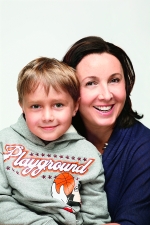 I gave birth to my first son at the age of 24. After 11 years, daughter Asya appeared. And immediately after the birth of the daughter, my husband and I wanted a third child - that they grow up together. But it did not work out. I have always had problems with women's health - if it were not for them, there would be more children. In general, by the age of 40 I had no hope of anything. But suddenly she began to feel bad, and the further it went, the worse. I went to a famous medical center. And there I was taken aback. The doctor examines me and says: “You have a tumor, and a serious one. It is felt by hand, so even an ultrasound does not make any sense. " I, to put it mildly, was very upset.
I gave birth to my first son at the age of 24. After 11 years, daughter Asya appeared. And immediately after the birth of the daughter, my husband and I wanted a third child - that they grow up together. But it did not work out. I have always had problems with women's health - if it were not for them, there would be more children. In general, by the age of 40 I had no hope of anything. But suddenly she began to feel bad, and the further it went, the worse. I went to a famous medical center. And there I was taken aback. The doctor examines me and says: “You have a tumor, and a serious one. It is felt by hand, so even an ultrasound does not make any sense. " I, to put it mildly, was very upset.
But my sister, having learned about it, persuaded to go to another doctor. She and I literally chose the clinic at random and the doctors - as it turned out, it was wonderful, she had been watching me for a long time. The doctor decided to do an ultrasound. So she looks at the monitor and suddenly says: “It is waving something like a pen!” I decided: apparently, these are some medical terms. Maybe everything is already so bad that it is me waving my internal organs? And when she told me that this was a pregnancy, already 14 weeks, I did not immediately realize what it was about. "Normal, I ask, is it human?" And she replies: "And this is a boy."
I did not say anything to my husband before. That day I arrived at the dacha and said. He just smiled, spread his arms like that and said: “We need to expand the house!”
And I must say, as soon as it became clear that this was a pregnancy, and not a tumor, then everything went with me, I began to feel great - as if wings had grown.
Everything was wonderful until the day when the eldest son Stas, who was then 16, went with the class to the musical “Nord-Ost”. And got to the very same idea when they were captured by terrorists. And I died for three days. Honestly, about the fact that I am seven months pregnant, I then forgot. My daughter was four and a half years old, and I was also worried about her. Asya, though small, but she understood that something was happening in the house: my father left, I always call him. My husband was there all the time on Dubrovka; my sister and I did not sleep for three days and did not eat. And, in general, left the room, staring at the TV. Stas, knowing what position I was in, was very worried about me. Their teacher insisted that the children could call home. And the son talked to me three times. He soothed, assured: "We are fed with soup here." Although, as it turned out, it was not true.
I got hysterical only when it was all over and I saw on TV that they were being released. The doctor allowed me to drink sleeping pills, I slept for two hours, and during that time Stas was found in one of the hospitals.
And only when Nikola was born very small and in the first days lost weight, I realized that the whole story affected his health. As for age, I did not think about it. What for? If the river has already entered, then swim. I'm not going to be younger in these 9 months, right?
Of course, the sensations from the birth of Nikola were completely different than from older children. Maybe because they were planned, and he - unexpected. When you yourself become older, you look at the situation, already being a very grown man. You perceive life differently, you value it more strongly. After all, how does an old woman differ from a young woman? By the fact that the old woman knows the price of life, she is much more pleased with all living things, the young — both green sprouts and children.
I was not hard. All the first year I fluttered. And since she was no longer afraid of anything, she was mobile, carried Nicola everywhere and everywhere with her. Communicated with a huge number of people, went to work after 7 months. More precisely, even for two works at the same time (I teach at the institute and work at the school). And that's what I understood: when you have small childyou internally become younger. You just have no time to grow old, consider your wrinkles and reflect on age. Now I also have a granddaughter Lyudochka - daughter of Stas. She is only five years younger than Nikola, and calls me Jeanne.
I often recall how, after the birth of Nikola, my eldest son, who was carried away by the computer at that time, made a collage on the computer: Nikolina, a photograph, around the hearts and the inscription “Happiness!”. He then understood everything - after all, this is truly complete and absolute happiness.
How to prepare for pregnancy to give birth to a healthy baby
• Consult a therapist, make sure you do not have inflammatory diseases.
• Visit the dentist.
• Check your eyesight, make sure it allows you to give birth in a natural way.
• Visit genetics, discuss with him the list of studies you need.
• Complete blood count, find out if you need iron supplements before pregnancy.
• Test for infectionssexually transmitted infections: HIV, chlamydia, mycoplasma, ureoplasma, etc.
• Do a x-ray - during pregnancy it can not be done.
• Hand over rubella antibody test. If they are not, then there is no immunity for this infection and it is imperative to be vaccinated.
Glossary: what is what
• ECO - in vitro fertilization. With the help of hormonal drugs, a woman causes the so-called superovulation, in the course of which not one appears, as in the natural cycle, but several eggs. Then the eggs are taken, piercing the follicle, and placed in a test tube. Further, in the laboratory, the egg cell is transferred to a Petri dish, where, after special treatment, the spermatozoa obtained from the husband's sperm also get. Ovum fertilized and after some time of maturation (from two to five days) embryos are transferred into the uterus. The doctor prescribes supportive drugs, and then, after 12-14 days, you can diagnose pregnancy.
Cost of: from 50 to 100 thousand rubles. excluding the cost of drugs.
• ICSI - intracytoplasmic sperm injection into the oocyte. The method of fertilization of the egg, in which a single sperm is injected directly into the cytoplasm of the egg with the help of special microtools and micromanipulators. This procedure is used in the course of an IVF program to overcome fertilization problems associated both with impaired fertility of the sperm and impaired permeability of the egg's membrane. It is used in case of deviation from the norm of one or several semen parameters, in severe cases of male infertility.
Cost of: 20–30 thousand rubles without the standard IVF procedure.
Read more about the IVF procedure.
We hope we answered the question of how to give birth to a healthy child even after 35!
How to give birth to a healthy child at any age
 4.3
1
5
12
4.3
1
5
12
Late pregnancy is one of the most controversial issues in obstetrics and gynecology. Is pregnancy possible after 40 years? Is it possible to bear and give birth to a healthy baby 45 years and older? It is possible, but it is more difficult to do this than for younger women.
Spontaneous pregnancy at 45 is the exception rather than the rule. At this age, if a couple or woman decided to acquire offspring, she comes to the question responsible:
- timely undergoes examination;
- fulfills the doctor's recommendations on the body's vitamin support, nutrition and treatment of existing ailments;
- cares about the mode of work and rest;
- refuses bad habits;
- do not wear tight tight clothing.
At the age of 45, a woman took place as a specialist, as a person, made a career and strengthened her financial situation. Having decided to conceive, she intends to devote maximum time to the upbringing and development of the child.
Cons of late pregnancy
With age, a person does not become healthier. It must be remembered that to bear and give birth to a healthy child is not yet the parental role. He needs to grow. In the first year of a baby's life, mother needs to be prepared for constant lack of sleep. As soon as the child began to walk, you need to get ready to spend a lot of time on the street in motion.
It is sometimes difficult for young parents to maintain the physical activity of their offspring, especially since it will be difficult to make them age parents.
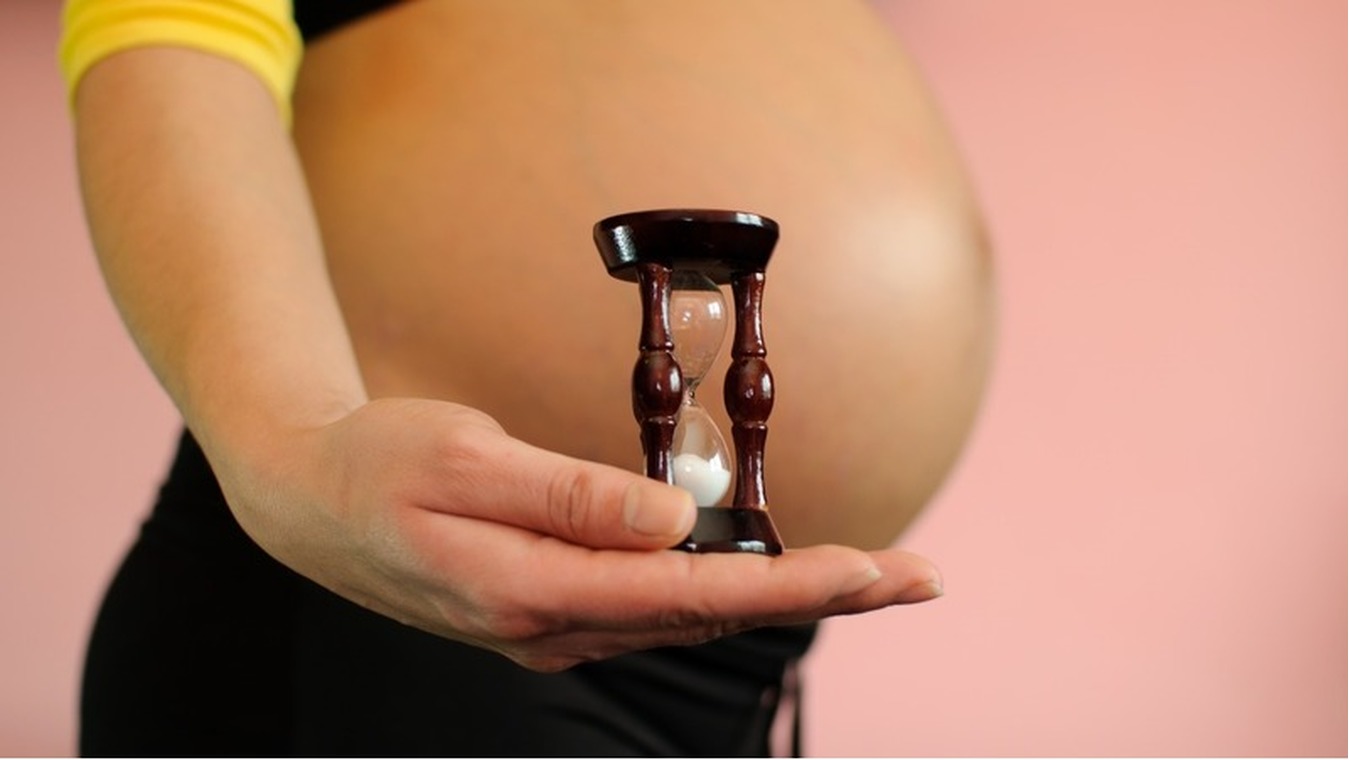
The child grows fast and heavy. You need to be ready to carry on hands 10-20 kg of live weight. The spine is not every young mom can withstand such a load. Moreover, a woman who already has changes in the intervertebral discs or joint problems will have a tough time.
By the time a child enters school, a woman will be slightly over 50, which means that on average she will be 2 times older than the other parents. From a psychological point of view, it may not be comfortable for her or the child. By the time of graduation, such a mother will be already retired. And you need to think in advance how she can help her child continue her studies.
The very process of carrying a child at such a mature age is fraught with many difficulties, problems and complications. Most women in the premenopausal period:
- already suffering from hypertension;
- have hypertrophic changes in the myocardium;
- tendency to varicose veins or thrombophlebitis;
- have chronic pathology of the digestive tract;
- suffer from diseases of the musculoskeletal system (arthritis, arthrosis, osteochondrosis, intervertebral hernia, etc.);
- and other more or less serious pathologies.

You need to be prepared to exacerbate these diseases. After the age of 45 and over, the risk is higher:
- the development of severe gestosis, preeclampsia and eclampsia;
- failure of pregnancy at the time of preterm and early labor;
- the development of hypertonicity of the uterus and hypoxia;
- development of placental insufficiency;
- weak generic activity and the need for operative delivery;
- the birth of a child with genetic abnormalities due to the accumulation of errors in the genetic material;
- the appearance of a child with impaired connective tissue development, that is, with various dysplasias (hip dysplasia, additional chords of the heart, an incorrect bite), with disorders affecting the organ of vision.
- breaks in labor, postpartum hemorrhage, which requires prompt measures, up to amputation of the uterus, thrombosis and other complications;
- the recovery period after childbirth lasts longer.
Dysplasias are not fatal, the extra chord does not affect the functioning of the heart. The maximum that can be expected from it is an easy murmur in the heart. Incorrect bite is easy to correct, and even hip dysplasia can be treated with timely diagnosis.
But these children have a higher risk of developing valvular heart disease, diseases of the joints, and still very many connective tissue pathologies.
 After 40 years, a woman enters a pre-menopausal period. This means the body begins to prepare for the withering of childbearing function. Less sex hormones are produced. Tissues, including the uterus and vagina, become less elastic.
After 40 years, a woman enters a pre-menopausal period. This means the body begins to prepare for the withering of childbearing function. Less sex hormones are produced. Tissues, including the uterus and vagina, become less elastic.
By this age, most women had had inflammatory diseases of the genital organs, some had gynecological surgeries, someone had many abortions. This not only reduces the chances of conception, but also the chances of a successful full-term gestation.
At the age of 40 years and older, a woman rarely has enough milk to fully breastfeed a baby. She has to feed the crumb mixed or adapted mixture. This makes the child’s immune system less prepared to fight infections, but more likely to develop allergic reactions.
Different people, different opinions
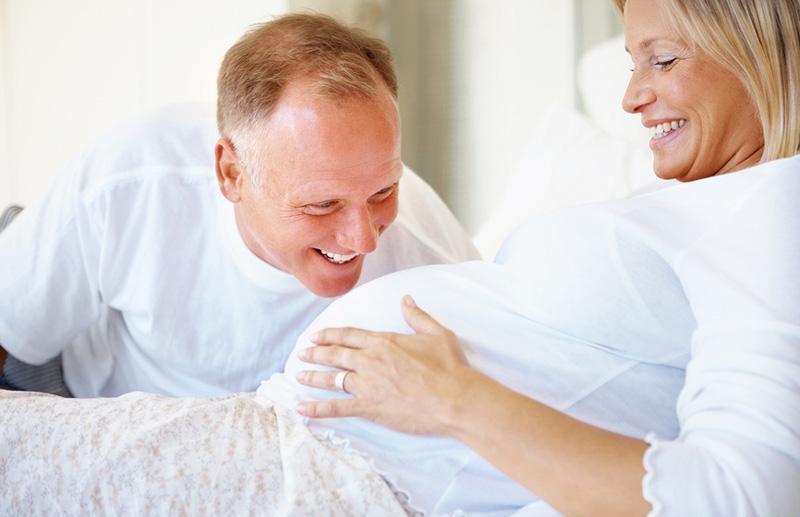
The opinion of the experts in question late pregnancy far from unanimous. Everyone acknowledges that the older the woman, the higher the risk for her and for the child. But a responsible approach to carrying and giving birth to a baby can compensate for age-related deficiencies.
It is also believed that late labor can postpone menopause and related pathologies (osteoporosis, stroke) to a later date. Climax in women who give birth in adulthood, usually passes softer and more physiological.
What to do if a woman began to have climacteric changes; she did not pay attention to contraception and became pregnant? The decision can be made only by herself with the participation of the future father of the child.
Doctors usually advise to think carefully before conceiving a child at this age, but if conception has already taken place, the expectant mother has all the chances to endure a full-fledged child. Simply, it will require more thorough supervision and it will be necessary to pass all tests, including genetic ones, in a timely manner.
Difficulties of conception after 45 years
If the couple met late or realized after 40 years, that life is on, and there are still no heirs, and thought about the continuation of the race, it is worth weighing the pros and cons. It is necessary to take into account not only the biological, but also the psychological age of future parents. If the couple feels older at the age of 40-45 years, then there is no point in thinking about the child.

If the future parents led a healthy lifestyle, feel in their prime, are cheerful and active, why not raise the question of the continuation of the race.
At this age, the chances of successful conception are lower than those of a couple of optimal child-bearing age. By 40 goals, a woman has a reduced number of eggs, there may be hormonal disorders. The mucous lining of the uterus does not grow as well as in adolescence, which may impede the introduction of the embryo.
But the modern level of medicine allows the age couple to have a successful conception, a normal pregnancy and the birth of healthy offspring. If a woman in 40-45 years showed signs of pregnancy. The first thing she should do is get an appointment with a gynecologist.
Pregnancy - these are wonderful moments, these are dreams and dreams, this is real happiness, especially if it is long-awaited. The future mother makes plans, how her life will change with the birth of the crumbs. And in the midst of all this, like a shot at close range, a diagnosis can hit - HIV. The first feeling is panic. Life is collapsing, everything is going upside down, but you need to find the strength to stop and think well. Pregnancy and HIV are not a death sentence. In addition, you first need to confirm how reliable the diagnosis is.
Better late than later
Indeed, for many women it is not clear why they need to be constantly tested for various infections during pregnancy. After all, they have a happy family, and with them this just can not happen. In fact, pregnancy and HIV very often go hand in hand. Just this disease is very insidious, it can be completely invisible for ten to twelve years. Even if there are a couple of seals (lymph nodes) on the neck, it may go unnoticed. In some cases, the temperature may slightly increase, sore throat, vomiting and diarrhea appear.
In order to identify the disease, we need special laboratory tests. The program of protection of motherhood and childhood must include a thorough future mother. That is why pregnancy and HIV are two concepts that are often found together. Perhaps, if it were not for an interesting situation, the woman would never go to a doctor.
Diagnostics
As it was already said, the only reliable way to diagnose is laboratory tests. When a woman she is sent from the first day for tests. It should be noted that they can not be appointed by force, without the consent of the patient. But it is in your interest, because both pregnancy and HIV that occur in the body at the same time should not remain without the supervision of a physician.
The most popular diagnostic method is ELISA, by means of which HIV antibodies are detected in a patient’s serum. PCR allows you to identify the virus cells themselves in the blood. Usually, this test is performed when HIV is already suspected in order to accurately diagnose.
If the doctor told you such unpleasant news, you can not panic. HIV and pregnancy can coexist fairly peacefully, and you may well give birth to a healthy baby. At the same time, we must not forget that it is vital for you to work closely with your doctor, to pass tests and follow the recommendations.
Can there be a mistake?
Of course it can! That is why it is necessary to pass a further examination, especially if you are confident in your partner. The fact is that the primary diagnosis is carried out using the already indicated ELISA method, which can give both false positive and false negative results. HIV and pregnancy at the same time is a blow for any expectant mother, but it must be remembered that the results obtained are not completely reliable. 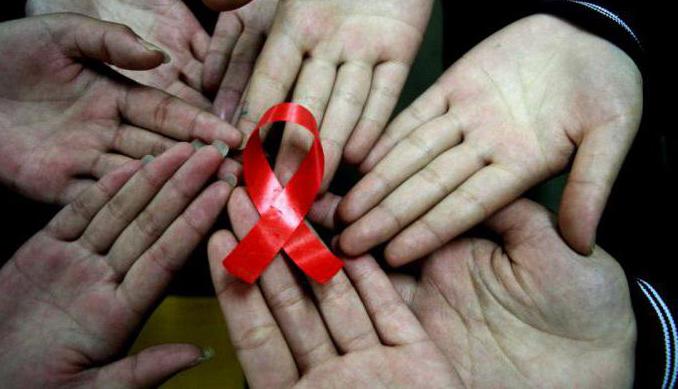
A false-negative result may be if the infection has occurred quite recently. That is, the person is already a carrier, but the body has not yet had time to react and develop protection, antibodies, which doctors find. False positive analysis is even more common, especially in pregnant women. The reasons lie in the physiology of this difficult period. Of course, anyone will not be up to sleep when such information arrives, but first of all, you need to weigh up, how much is possible the development of events, what prerequisites were there, and, of course, continue the examination.
Course of pregnancy
HIV and pregnancy can take their course, not too affecting each other. Pregnancy does not accelerate the progression of infection in women who are in the early stages of developing the disease. According to statistics, the number of pregnancy complications in this case in infected women is almost no more than that in women without HIV. The only exception is bacterial pneumonia, which is more often diagnosed.
HIV testing during pregnancy is also needed in order to assess the stage of development of the disease. By the way, if we compare mortality with immunodeficiency syndrome, who gave birth and refused it (we are talking about termination of pregnancy after the diagnosis has been made), there are practically no differences.
Clinical picture during pregnancy
This moment is especially important for those women who have already learned about their disease during gestation. How does HIV flow during pregnancy, what are the symptoms and treatment of this disease in expectant mothers? These are questions, the answers to which could help many women assess what is happening to them and take adequate measures. But, unfortunately, it is more or less difficult to describe them. The fact is that the immunodeficiency virus develops and progresses against the background of a weakening of the protective functions of the body. And the stronger the immune system retreats under its onslaught, the more pronounced the symptoms will be.
Usually, 6-8 weeks after infection, the person begins to experience the first signs that the expectant mother can easily take for a typical pregnancy picture. At this time, possible increase in fatigue, fever and decreased performance, as well as diarrhea. 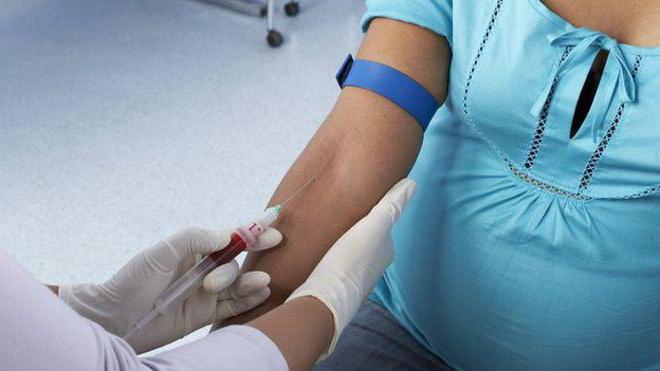
What is the main difficulty? This stage does not last long - just two weeks, and the symptoms subside. Now the disease takes a hidden form. The virus enters the stage of persistence. The period can be very long, ranging from two to 10 years. And if we talk about women, then they have a tendency to a long course of the latent stage, in men it is shorter and does not exceed 5 years.
During this period, all lymph nodes are enlarged. This is a suspicious symptom that requires examination. However, here lies the second difficulty: an increase in lymph nodes during pregnancy is normal, and is very common in healthy people. However, this symptom must necessarily alert the future mother. It is better to be safe once again than to lose precious time.
Intrauterine development of crumbs
In this issue, physicians are very interested in one thing, namely, at what time the infection occurs. Much information for this was provided by the tissue of spontaneous miscarriages and infected mothers. Thus, it was found that the virus can cause in the first trimester, but the probability of this is not too high. In this case, children are born with severe lesions themselves. As a rule, they do not live long.
More than half of all cases of infection occur in the third trimester, the period immediately before birth and the birth itself.
Another interesting fact is that quite recently the detection of antibodies to HIV in the blood of a pregnant woman was an indication for carrying out an immediate termination of pregnancy. This is associated with a high risk of infection of the fetus. However, today the situation has changed. Thanks to modern treatment, a woman is not even sent to a planned cesarean if she receives the necessary treatment.
The probability of infection of the baby
As we know, according to statistics, the immunodeficiency virus is transmitted from mother to child. This is one of the three ways of infection. HIV positive during pregnancy increases the risk of having a baby with a congenital immunodeficiency virus by 17-50%. However, antiviral treatment reduces the likelihood of perinatal transmission of infection to 2%. However, when prescribing therapy, it is necessary to take into account the course of pregnancy. HIV, as we have described, can also be different. Factors that increase the likelihood of transmission to the fetus are:
- late treatment when the disease has reached a late stage;
- infection during pregnancy;
- complicated pregnancy and difficult childbirth;
- damage to the skin of the fetus during childbirth.
Infection during childbirth
In fact, if the HIV test is positive during pregnancy, you may well give birth to a healthy baby. But he will be born with the mother's antibodies. This means that immediately after birth, the baby will also be HIV-positive. But so far it still means only that his body does not have its own antibodies, but there are only maternal ones. It will take another 1-2 years until they completely disappear from the body of the crumbs, and now it will be possible to say for sure whether the child has become infected. 
The future mother should know that HIV during pregnancy can be transmitted to the baby even during fetal development. However, the higher the immunity of the mother, the better the placenta works, that is, the organ that protects the fetus from viruses and bacteria that are in the maternal blood. If the placenta is inflamed or damaged, the probability of infection increases. This is another reason for which it is necessary to undergo a thorough examination with your doctor.
But most often the infection occurs during childbirth. Therefore, pregnancy with HIV infection must be accompanied by compulsory antiviral therapy to minimize this chance. The fact is that during the passage through the birth canal the baby has great chances to come into contact with blood, which dramatically increases the possibility of infection. If you remember from school, this is the shortest way to transmit the virus. Cesarean section It is recommended when a large number of viruses are detected in the blood.
After childbirth
As we have said, an HIV test during pregnancy is necessary so that, in the event of a positive result, the mother can undergo a full-fledged therapy and maintain her state of health. During pregnancy, physiological suppression of immunity occurs. Therefore, if the previous study looked only at the gestation period, others went further and found out that after birth the development of HIV could accelerate. Over the next two years, the disease can go into a much more severe stage. Therefore, one cannot rely only on the desire to become a mother. Consultation with a doctor is required at the planning stage. Only such an approach can be your assistant. HIV positive during pregnancy can seriously undermine health, which subsequently leads to a reduction in the quality of life.
Breastfeeding and its hazards
Pregnancy of an HIV-infected person can proceed very well when the baby develops normally and is born completely healthy. Of course, his mother’s antibodies will be contained in his blood, but they may not affect children's immunity. However, now the mother has a choice of whether to feed the baby breast milk. The doctor must explain that breastfeeding almost doubles the risk of infection. Therefore, abandon it, which will be the best choice. Quality mixes will give your baby a much better chance for the future.
Your risks
There are a number of factors that may not be in your favor. This is primarily a weakening of the immunity of the mother. High, that is, a large number of viruses in the blood of women - this is also a bad sign. In this case, the doctor may offer to terminate the pregnancy. We have already spoken about breastfeeding - 2/3 of all cases of infection of a child from his mother occur during the first six weeks of life. Multiple pregnancy - this is also a risk factor. 
First of all, the expectant mother should be registered as early as possible. Be sure to follow all recommendations of the attending physician, then you will be more likely to have a healthy baby. Starting from the 14th week, a pregnant woman can take the antiviral drug Azidothymidine or its equivalent. She receives such prophylaxis for free. If a woman for several reasons did not accept it until the 34th week, then it is necessary to begin to do it at a later time. However, the earlier the treatment is started, the less chances the mother has to pass on the disease to her baby.
Treatment
HIV therapy during pregnancy requires careful weighing of the state of the mother and the duration of pregnancy. That is why leave it to an experienced doctor and in no case try to self-medicate. If you applied to a specialist before pregnancy, at the time of its planning, then, most likely, you will be prescribed combination therapy. The decision to start it is made on the basis of two analyzes - this is the level of DM-4 cells and the viral load. Current treatment requires the simultaneous use of two or more antiviral drugs.
The HIV test (pregnancy is the reason to cancel the combination therapy) is the starting analysis on which all further treatment is based. For the future mother, only one antiviral drug is left to prevent the infection of the crumbs.
If a woman took a combination therapy before pregnancy, then in case of the onset of such, she is recommended to take a break for the first trimester. In this case, blood for HIV during pregnancy is usually taken three times, and in the specific case, the number of samples may increase at the discretion of the physician. The rest of the treatment is prescribed symptomatic. This reduces the risk of the development of malformations of the future baby, as well as avoiding the formidable state of resistance, in which the virus is no longer treatable.
What should a woman remember
Despite the fact that the achievements of modern medicine can reduce the risk of infecting a child from his own mother to 2%, he still exists. Therefore, you need to weigh the pros and cons, because a woman, even being HIV-infected, wants to endure and give birth to a healthy baby. The difficulty is that you will not know whether your baby was born HIV-positive for quite a long time, and it is impossible to predict this in advance. So you have a long and painful waiting. IFA will give a positive result for about 6 months after delivery, so be patient.

Deciding to give birth, a woman should be aware of what awaits her child if he falls into this unhappy 2%. We remind that such a minimal probability of having a baby with an immunodeficiency virus is possible only if the woman did not follow all the recommendations of the doctors, did not undergo regular examinations and did not take the drugs exactly according to the schedule.
The most difficult is HIV infection in those babies who have become infected in utero. Symptoms in this case are much brighter, and often these children do not live up to one year. A smaller number can meet the adolescent period, but to predict their life in adulthood is possible only hypothetically, since so far there have been no such cases.
HIV infection during childbirth or breastfeeding proceeds somewhat easier, because the virus already falls on a formed organism with a developing immune system. However, the longevity of the child will be very limited. Usually, doctors do not make a forecast for more than 20 years.
Prevention
Congenital HIV infection is a hospital and medicine since childhood. Of course, everything must be done to prevent such a development of events. Therefore, it is very important to carry out timely prevention of this disease. Today this work is carried out in three directions. The first is HIV prevention among women of childbearing age. The second direction is the prevention of unwanted pregnancies among women with HIV. Finally, the last is the prevention of transmission from woman to her child. 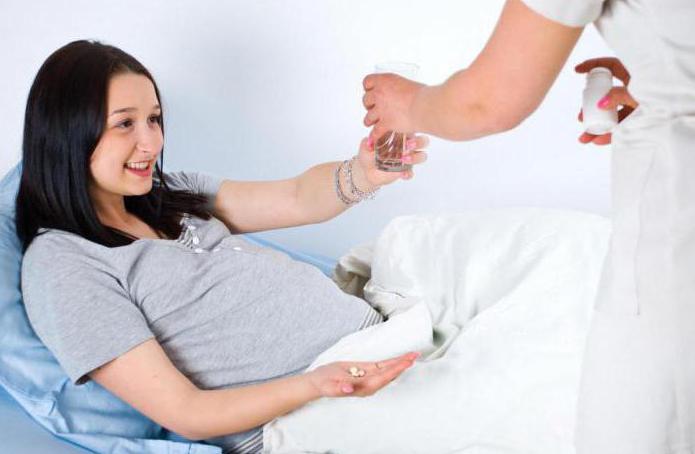
A positive HIV test during pregnancy is not the end of the world. However, a woman should be aware that she has a chance to infect a baby. Modern therapy has greatly increased the life expectancy of an HIV-positive person. Many live 20 years or more from the moment of infection. However, if for an adult it is a lifetime, then for a child is a chance to meet youth and leave. Achievements of physicians do not relieve women from responsibility, so first of all each of them should think about the future of their baby.
Instead of conclusion
This is a topic about which you can talk endlessly, and still there will be a lot of understatement. HIV diagnosis, like a bad dream, destroys all plans for the future, but it is especially tragic to find out about your diagnosis during pregnancy. In this case, before future mom It is a difficult choice and a huge responsibility. Give up your baby or give birth? Will he be healthy or will he endless treatment? All these questions do not have a definite answer. Today we gave you a brief insight, told about the main problems associated with the course of pregnancy in infected women.
Of course, the achievements of modern medicine made it possible to feel the joy of motherhood for a huge number of women. Today, people diagnosed with HIV have believed that they are full-fledged members of society, have the right to family and the birth of healthy children.